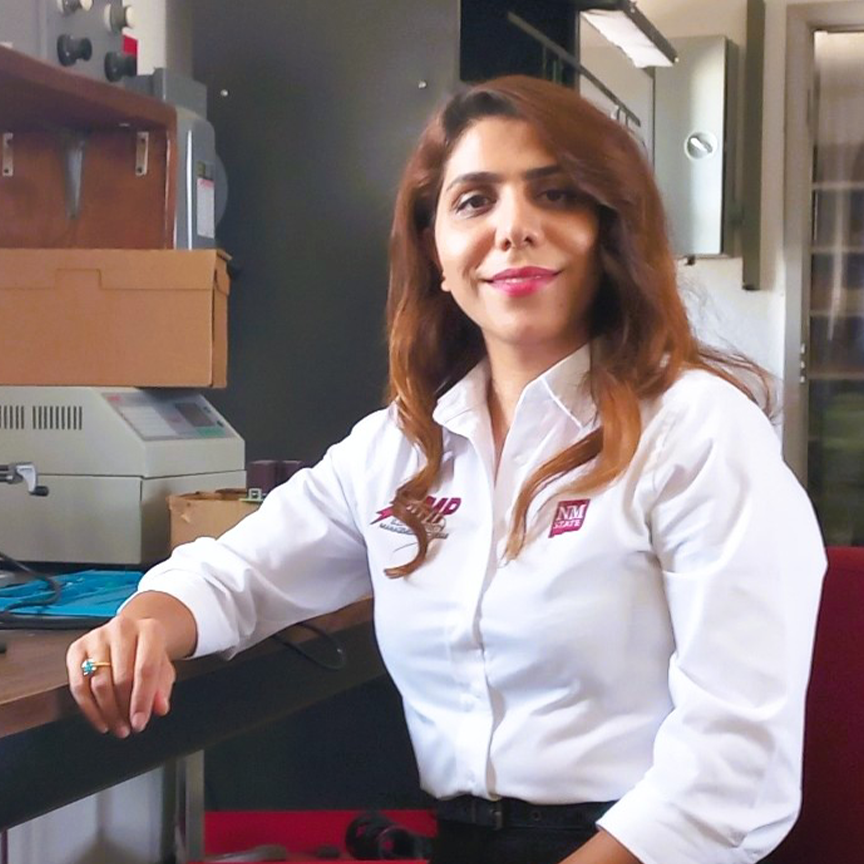
Learning to Listen: How I-Corps Transformed a Student's Approach to Innovation
When Farzaneh Eslami, a graduate student in electrical engineering at NMSU, first joined the I-Corps program, she thought she knew exactly how to present her research idea for improvements in the transformer industry. Like many technically-minded innovators, her instinct was to lead with the solution—to explain her technology and convince others why it was valuable.
"At first, when I started, I thought that okay, this is my idea and I have to introduce my idea to everybody," Eslami recalls. But through the rigorous customer discovery process that defines I-Corps, she discovered a completely different approach that would transform not only how she viewed her research but also how she communicates in professional settings.
The turning point came as Eslami conducted her required customer interviews. Initially, she found herself doing most of the talking, explaining her innovation in detail. "I start for explaining. Explain my idea. Explain, explain. And I think it should be boring for that people," she reflects. The response was polite but lukewarm—people listened for a few minutes, but engagement quickly faded.
Everything changed when she shifted her strategy from presenting solutions to asking about problems. "Step by step I change my question because at the beginning I start to explain about my idea. But step by step, yes, I start to ask, okay, what is your challenges with this stuff? Okay, what do you want to improve this stuff?"
The results were immediate and dramatic. "When you listen to the people, they believe that they can trust you. When you want to start to talk, nobody prefer to trust you," Eslami discovered. By focusing on her interviewees' challenges rather than her own technology, she created genuine conversations that yielded valuable insights.
Through 30+ customer interviews, Eslami learned critical lessons about market validation. She discovered that end users—like hospital managers or data center operators—weren't the right audience for technical discussions about transformer improvements. "It's better to find a good person to introduce your idea somehow," she explains, realizing that engineers, designers, and researchers were more appropriate interview targets who could provide meaningful feedback about technical challenges.
The I-Corps experience provided Eslami with skills that extend far beyond her research project. "We don't have marketing information. We don't have marketing courses. I would like to let all of the university have the marketing courses for all engineers," she notes, highlighting a gap many technical students face. The program helped her develop crucial communication skills, particularly the ability to make a strong first impression. "Just 5 minutes at the beginning of 5 minutes is important and the people listen to you," she learned.
Perhaps most significantly, I-Corps taught Eslami the value of empathy in innovation. Rather than pushing her ideas onto others, she learned to understand their perspectives first. This approach not only made her a better researcher but also prepared her for future career challenges, whether in industry or entrepreneurship.
Today, Eslami continues working on her research with her advisor, applying the customer-focused insights she gained through I-Corps. She's pursuing funding opportunities and has gained invaluable experience in translating technical innovation into market-relevant solutions.
"It was very interesting for me," Eslami reflects on her I-Corps experience. "I figured out how to marketing somehow a new item—not to start with 'okay, this is my item,' but to start with their problem and then improve your idea somehow."
For Eslami, I-Corps was more than just a program about commercialization—it was a masterclass in human-centered innovation that will serve her throughout her career.